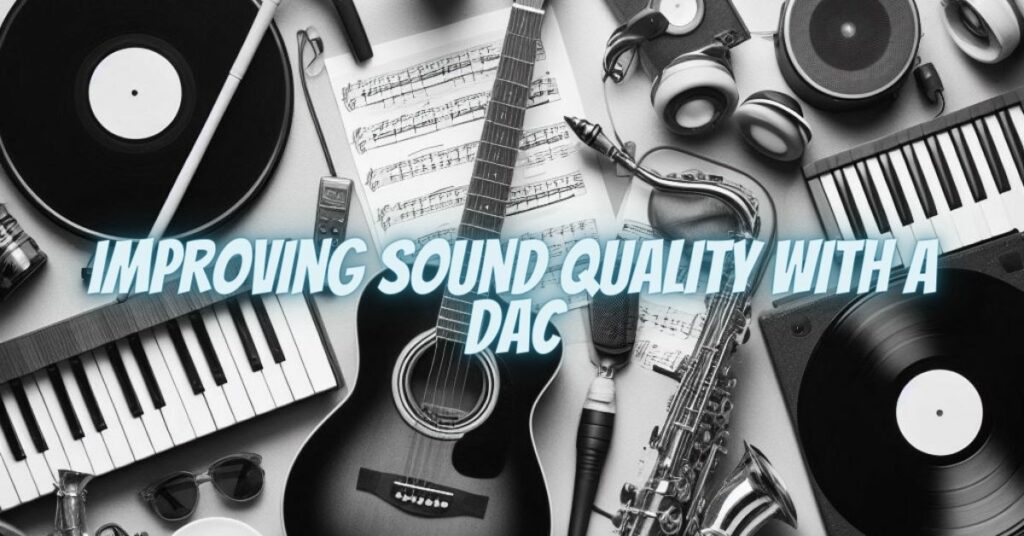The pursuit of better sound quality is a common goal for music enthusiasts, and Digital-to-Analog Converters (DACs) are often considered a means to achieve that goal. But will a DAC genuinely improve the sound quality of your audio setup? In this article, we will explore the function of DACs and their potential to enhance audio quality, helping you understand the role they play in your listening experience.
The Core Function of a DAC
A Digital-to-Analog Converter (DAC) serves as a bridge between the digital audio world and the analog sound produced by your speakers or headphones. It takes digital audio signals, which are essentially streams of numbers, and converts them into analog signals, which are the sound waves you can hear. This process is crucial because most audio sources, such as CDs, streaming services, and digital music files, store audio in a digital format.
How Can a DAC Improve Sound Quality?
A DAC can enhance sound quality through several mechanisms:
- Precision Conversion: A high-quality DAC is designed to convert digital signals with extreme precision, minimizing errors and distortions in the audio signal. This precision translates into cleaner, more faithful audio reproduction.
- Reduced Interference: Dedicated DACs often incorporate features to reduce noise and interference during the digital-to-analog conversion process. This leads to a purer audio signal with fewer artifacts.
- Customization: Many external DACs offer customization options, allowing you to fine-tune the audio output to your specific preferences. This customization can cater to individual listening preferences and room acoustics.
- High-Resolution Audio Support: High-quality DACs are capable of supporting high-resolution audio formats, such as FLAC or DSD, which contain more audio data than standard audio files. A DAC that can handle these formats ensures that you experience the full range and detail of your music.
Scenarios Where a DAC Improves Sound Quality
- Built-In DAC Limitations: Many consumer audio devices, like smartphones and laptops, come with built-in DACs that prioritize cost and space over quality. If you’re using these devices to listen to music, an external DAC can provide a substantial improvement in audio quality.
- High-End Audio Equipment: If you own high-quality headphones, amplifiers, or speakers, a dedicated DAC can unlock their full potential, revealing nuances and details that might be lost with a lower-quality DAC.
- Customization and Fine-Tuning: If you value the ability to tailor your audio experience to your specific preferences, a DAC with customization options can help you achieve the sound signature you desire.
Scenarios Where a DAC May Not Show Noticeable Improvement
- Casual Listening: If you’re a casual listener who doesn’t prioritize audio quality, or if your audio source material is of lower quality, the benefits of a high-end DAC may not be as pronounced.
- Budget Constraints: If your budget is limited and you need to allocate funds to other components of your audio setup, investing in a high-quality DAC might not be a priority.
- Subjective Preferences: Audio quality is subjective, and what one person perceives as a significant improvement, another may find less noticeable. Personal preferences, listening environments, and hearing sensitivity play a significant role.
In conclusion, a DAC has the potential to improve sound quality in various scenarios, especially when dealing with subpar built-in DACs, high-end audio equipment, and a desire for customization. However, the extent of this improvement varies from listener to listener and depends on factors like individual preferences, audio source quality, and budget constraints. Ultimately, the decision to invest in a DAC should align with your specific audio needs and the level of audio quality you seek in your listening experience.


